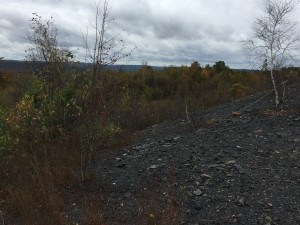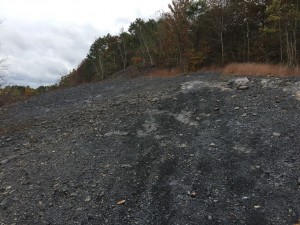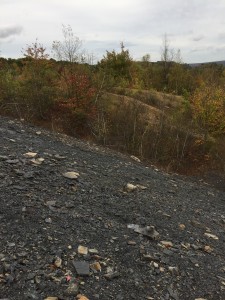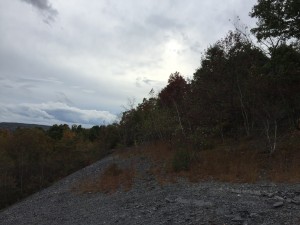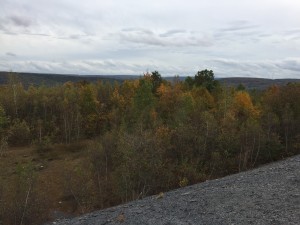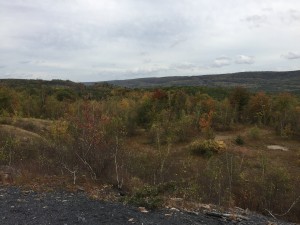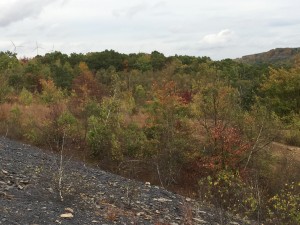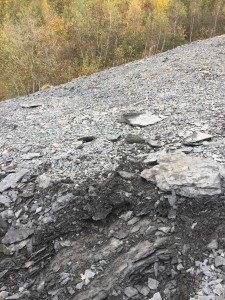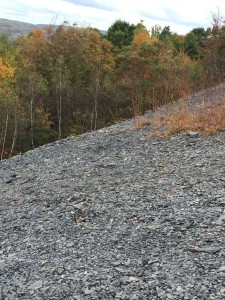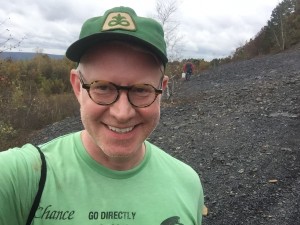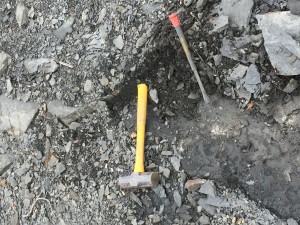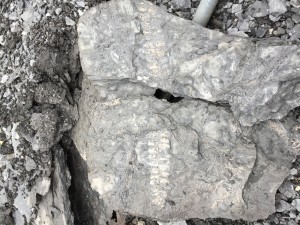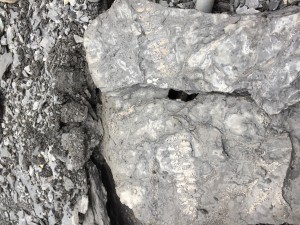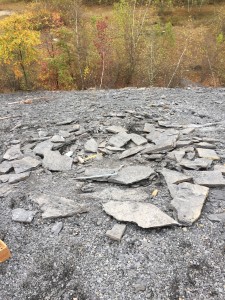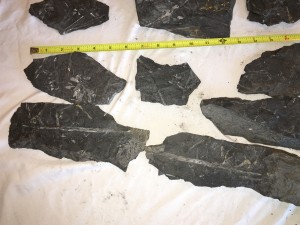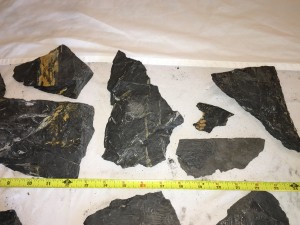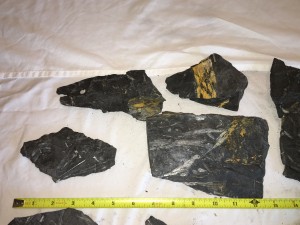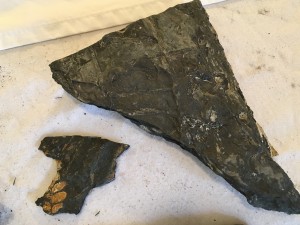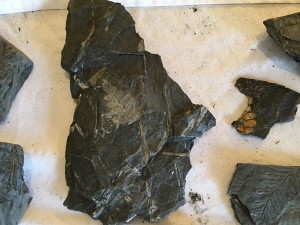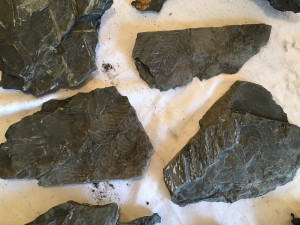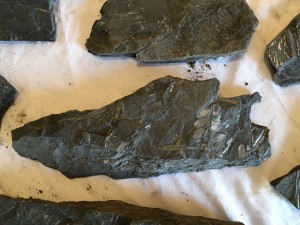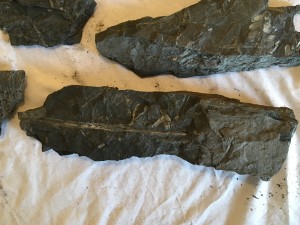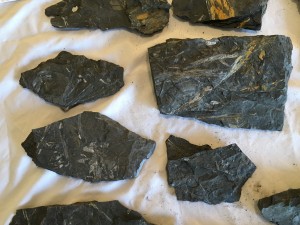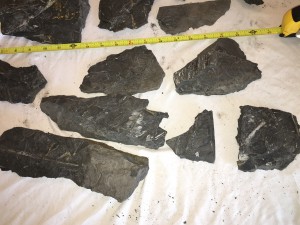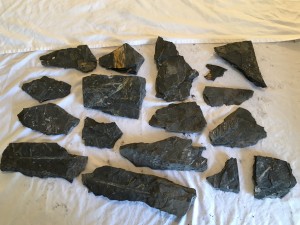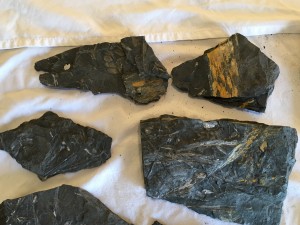American Geode returned to the abandoned ghost town of Centralia, Pennsylvania to trace the source of rumors and stories about fern fossils that had supposedly been discovered in this dangerous, forgotten town in the heart of coal country. October 2017, returning from a successful trip in Renovo, PA, making a Red Hill fossil discovery, the team decided to stray a little off of I-80 and revisit Centralia. Centralia, PA is an old coal town that had been abandoned, demolished and condemned in the 1990s due to an underground coal mine fire raging since the early 1960s. Centralia can still be discovered on a map, and it is like walking into a set for “The Walking Dead,” or a show set after the Apocalypse.
There are many articles written about Centralia that contain more history and background than American Geode can share. We were there because people were telling us that they found fern fossils.
We parked the car past the second cemetery in town, walked about 300 meters, and found a hillside that was in fact covered with slate and shale. This was somewhat treacherous and American Geode would classify this site as “intermediate.” Wear boots with soles made for rocky and slick surfaces, wear gloves, long sleeves in case you stumble, and bring water and food because you are in an abandoned town after all. We were reluctant at first to start digging, but to paraphrase Walt Disney it was time for us to stop talking and “just get to work.”
We were very excited when we started finding branches, and some ferns. American Geode believes that this is the site of a swamp or marsh where trees fell and died. We found many more branches and logs than we did fern fossils. The fern fossils are the most dramatic however and most highly sought after. Following is background on the fern fossils one can find in Centralia, photos of our adventure and a video. We are selling many of the fern fossils we discovered this trip. Please contact American Geode for details or visit us on ebay: https://www.ebay.com/usr/americangeode
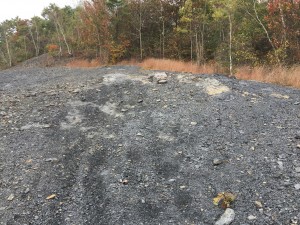
From the American Geode eBay shop:
Fern fossils, tree branches from Centralia, Pennsylvania, from an abandoned off-limits site. This is the first time they have come to market.
Discovered by American Geode in October 2017.
Excellent set of 17 fern and plant fossils, museum quality. Academics, curators, collectors and interior design professionals have called our plant fossil collection some of the finest ever assembled. These fossils are becoming increasingly rare. The mineral Pyrophyllite is what gives the fern and vegetation impressions their unique white color. The unusual gold tint is rare and is caused by iron ore that was present during the fossil formation.
Name: Fern Fossils and Tree Branches
Fern Species: Alethopteris
Location: Centralia, Pennsylvania, U.S.A.
Time: Pennsylvanian Sub-period, 320-290 million years old
Llewellyn Formation


